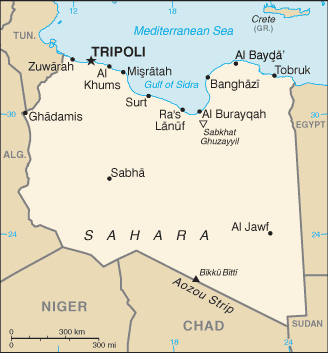Libya

The Great Socialist People's Libyan Arab Jamahiriya has an estimated population of 6.5 million (UN, 2010). The capital is Tripoli. Libya has an area of 1.77 million sq km (685,524 sq miles). The main language is Arabic.
Libya became independent in 1951, which was followed by the 1969 military coup led by the colonel Gaddafi. After many years of isolation, Gaddafi returned to the international community by resolving the Lockerbie bombing and pledged his commitment to stop the development of weapons of mass destruction.
In Libya, unlike most Arabic countries, women can vote, work, drive hold political and judicial office and they can have their own business. When he took power in 1969, Gaddafi decided to grant and enforce women's rights. Although the law requires equal rights for women in Libya, social and traditional pressures can cause violations of the principle of equality.
- Libya ratified the Protocol to the African Charter on Human and Peoples' Rights on the Rights of Women in Africa (The Maputo Protocol) on the 23rd of May 2004.
- The Convention on the Elimination of All Forms of Discrimination against Women (CEDAW) was ratified by Libya on the 16th of May 1989.
- Libya has not yet adopted a National Action Plan on United Nations Security Council Resolution 1325 (UNSCR 1325).
- There are no current or former UN peacekeeping mandates in Libya
Source:BBC, AlertNet, CIA, UN, SIGI
